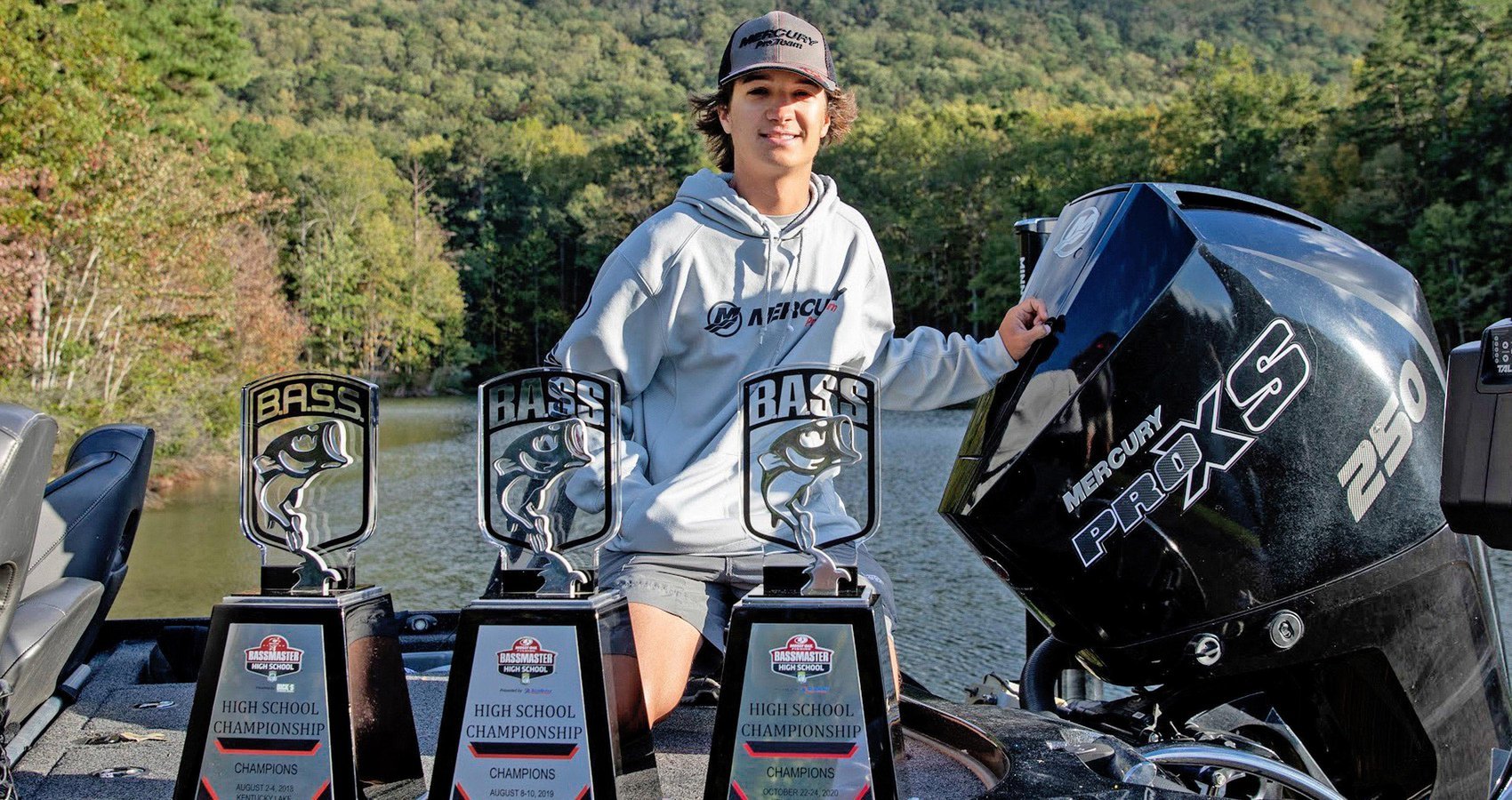There are a lot of ways people measure success. Money, power and possessions are popular measuring sticks, of course, but spend a little time with D.C. Lee – or, better yet, with someone who knows him – and you’ll see what true success looks like.
Lee, of Andalusia, Alabama, will turn 90 in 2021, and he’s spent a good bit of those nine decades catching fish, baiting hooks for kids, gently teaching life lessons and shaping young minds. The thing is, Lee raised nine kids of his own and mentored countless other friends and relatives, and fishing has been a cornerstone of the positive influence he has had on so many people.
Success is the legacy you leave behind and the lasting good you do for people, and, in that respect, Lee has few peers.
Fishing was Lee’s simple way of keeping close tabs on his children and providing him the uninterrupted time needed to steadily impart wisdom and help build the character that would keep them on the right path. He uses it still today to connect with his grandchildren and other members of his family.
“Buy your kid a rod and reel and take ’em to the creek, and that’ll keep ’em off the streets,” Lee is fond of saying. “My greatest memories are the times I spent with my boys. I never told my children where to go and what to do when it came to the outdoors, whether it was fishing or hunting. But I made time to go with them, to spend time with them, mentor them, and this has made the difference in their lives.”
It turns out “made the difference” is quite the understatement. The children of Lee and his late wife, Clara, have all gone on to successful careers and established families of their own, and they unanimously credit their father with giving them a good start in life and a strong moral compass. His son Robert graduated from Auburn University and has spent 30 years working for the U.S. Forest Service. Robert and his wife, Ellee, also spent four years as volunteer missionaries, with a focus on Bible education, working with single parents, helping parolees get a second chance and assisting with disaster relief in south Alabama.
“What he taught us has been translated to the grandkids and their kids,” Robert said. “It’s like there’s a culture of ‘you know what grandpa stands for,’ and they certainly try to model that. We don’t have any family members who are in prison, no family members who are on drugs that I’m aware of. No family is perfect, of course, but they all try to be good, productive people.”
D.C. was born in 1931, just as the Great Depression was getting into full swing. Economic circumstances compelled him to leave school in the ninth grade, and he went straight to work, picking strawberries and doing anything else he could to help his family survive. He eventually would become a butcher, a job he worked for 41 years until the union went on strike.
“I didn’t want to participate in any strike, so I went into the logging business,” D.C. said.
He worked in the timber industry for nearly 30 years until he retired – more than 70 years after he started his first career, if you’re counting.
Through it all, he also worked to instill in his children the values that he knew would serve them throughout their lives: faith, family, education, and a willingness to work hard and to serve others. And it’s no coincidence that a lot of these life lessons were gently taught on the banks of a pond or creek, rods in hand.
While the actual fishing was D.C.’s secondary mission, he was and is no average angler. He’s happy to go after bream or anything else that will bite, but his favorite is largemouth bass, and he’s known in his community as a master of the plastic worm. When it comes to fishing, his sons refer to him as the “Silent Master,” with no hint of exaggeration or sarcasm – he’s simply that good. D.C.’s biggest bass to date was an 8- or 9-pounder, he said, but his sons say he’s better known for his ability to catch fish even when everyone else is getting blanked. His son Eric saw this happen over and over.
“You can chunk a worm or a lure near a stump and use every maneuver you have in the toolbox and walk away empty-handed,” Eric said. “Then dad would throw his ol’ worm in the same spot and pull out a lunker bass.”
Though he stays pretty modest about his fishing prowess, D.C. does enjoy his reputation and a bit of a local celebrity.
“They’d ask me, ‘Where’d you catch those fish, Mr. D.C.?’” he said with a laugh. “I’d tell them I caught them all in the same place: in the mouth!”
But D.C.’s true legacy is and will always be his children and the others he has influenced who have gone on to full, happy lives in no small part due to the time that they spent with him at the fishing hole. All the time spent outdoors with D.C. – fishing, of course, but also hunting and logging – also influenced many to make a career in the Forest Service. Aside from Robert, Ellee worked for the service, and Eric has worked there 28 years. Another son, Charles, and his wife, Wanda, retired from the service after 38 and 23 years, respectively. Two other relatives, Elrand Denson and Deidre Ward Smith, work in the national office in Washington, D.C., each with 30 years of tenure. Assorted other nephews, nieces and spouses are Forest Service employees also. Collectively, the Lees and their extended family have worked nearly 200 years in the Forest Service, and they’re not done yet.
Son Tony lives just down the street from his father, having retired after 35 years in the chemical industry, and can often be found driving D.C. around the local backroads, reminiscing about the good old days. The patriarch’s acolytes have also enjoyed success in banking, the petroleum industry and education, to name a few. And for many of them, it all started out on the creek bank with D.C.
“When they’re fishing with you, you know where they’re at,” D.C. said.




